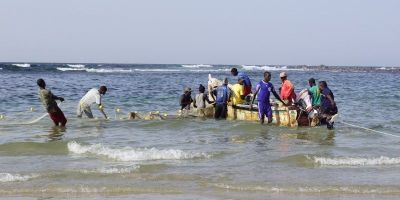Geoscientists call for action on tackling racial inequality

An article published in the journal Nature Geoscience has highlighted the 'stark' under-representation of students from ethnic minority backgrounds in the Geosciences.
The analysis indicates that geology, physical geography and environmental science are the three worst physical science subjects for representation of Black, Asian and minority ethnic students in full-time undergraduate study in UK higher education, with poor progression into postgraduate research. The authors lay out steps to address this diversity crisis and make the discipline more equitable.
In the 2018/19 academic year just 5.2% of Physical Geography postgraduates identified as Black, Asian, or minority ethnic, despite these groups comprising 18.5% of the UK 18-24 year old population. Over the past five years on average just 1.4% Geology postgraduate researchers identified as Black, compared to 3.8% of UK 18-24 year olds.
These data show that Geoscience subjects, which are crucial to developing the UK’s more sustainable future, have not adequately dealt with the legacy of the past when it comes to diversity and inclusion.
The authors hope that the work will galvanise the UK community into action and encourage other science disciplines to take similar steps.
Dr Jacqueline Houghton, from the School of Earth and Environment at Leeds and co-author of the study, said: “That the GEES disciplines are predominantly white has been recognised for some time, but the data gathered here show the inequalities in terms of race and ethnicity are stark.”
“With this evidence it is vital we act now, as a community, to address the bias and hostile environments that act as barriers to our field.”
Dr Natasha Dowey, lecturer in physical geography at Sheffield Hallam University, who led the analysis, said: “It’s about time that this data is scrutinised. We see the lack of diversity every day in our university corridors.
“Our subjects are built on a legacy of imperialism and are impacted by structural barriers that discriminate against minority groups. It’s up to the entire geoscience community to make anti-racist changes and be positive allies to Black, Asian and minority ethnic students and colleagues.”
The authors recommend a range of interventions, including decolonisation work, ring-fenced opportunities for ethnic minority students, and meaningful reform of discriminatory recruitment and accreditation practices.
Ben Fernando, a PhD student at the University of Oxford and campaigner for racial equality in STEM subjects, said: “This analysis makes it undeniably clear that the geosciences in the UK has a serious diversity problem. Our hope is that by proposing concrete actions that institutions can take, this article will help form the basis for a solution”.
Further information
Read the full article: ‘A UK perspective on tackling the geoscience racial diversity crisis in the Global North’




